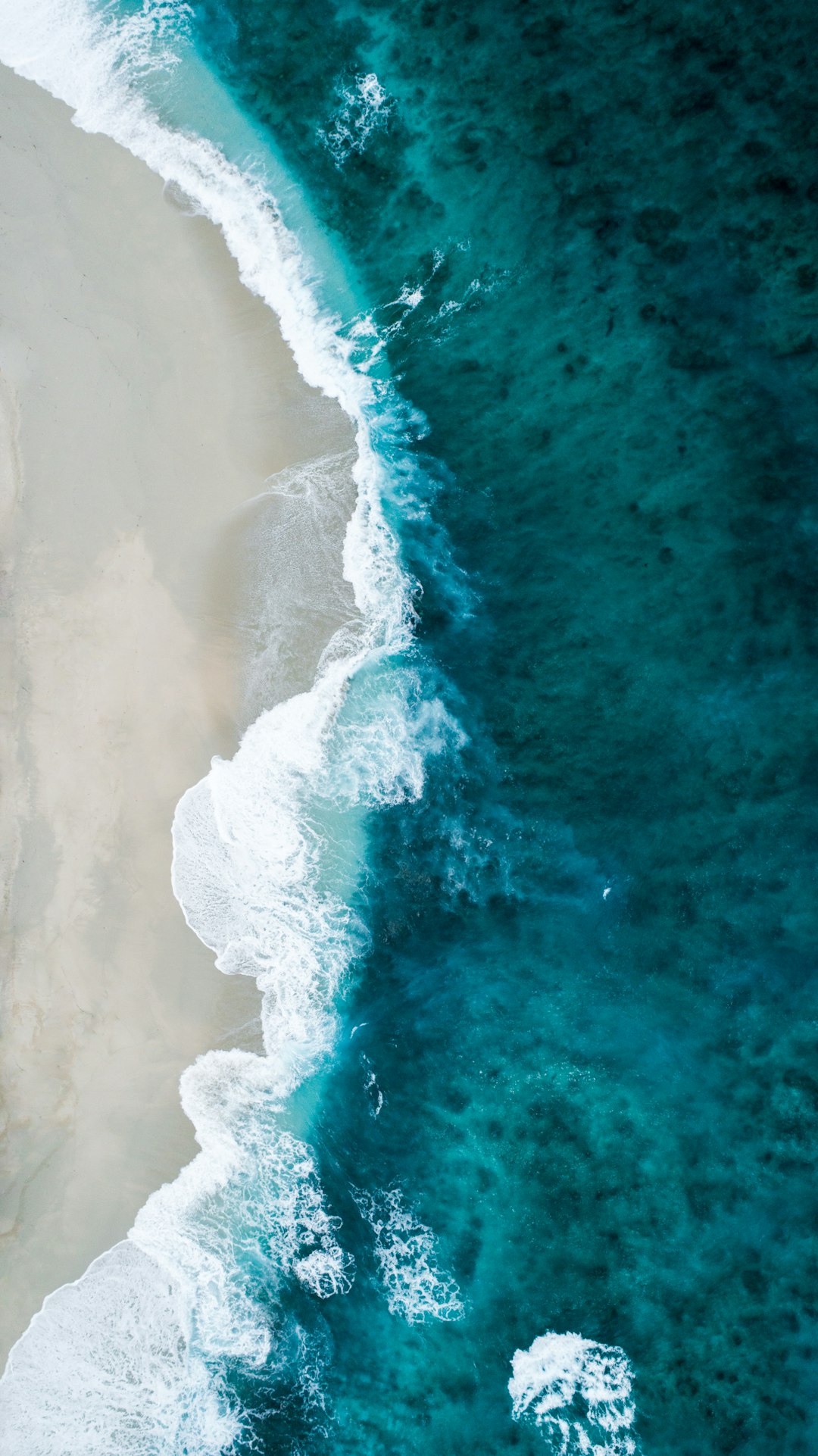Support our educational content for free when you purchase through links on our site. Learn more
Is Ocean Conservation a Global Issue? [2023]
Introduction:
Welcome to Gone Greenish™, where we explore the importance of a healthy planet for a healthy you. Today, we dive deep into the topic of ocean conservation and its global significance. From plastic pollution to overfishing, commercial whaling to climate change, the challenges facing our oceans are immense. In this article, we will examine why ocean conservation is a pressing global issue, the impact it has on our planet and future generations, and how each of us can contribute to a healthier oceanic ecosystem. So, let's take a deep breath and dive right in!
Table of Contents
- Plastic Pollution
- Overfishing & Destructive Fishing
- Commercial Whaling
- Pollution & Climate Change
- Protecting Ocean Sanctuaries
- Human Rights on Land & at Sea
- FAQ
- Quick Tips and Facts
- Useful Links
- Reference Links
Plastic Pollution
Plastic pollution is one of the greatest threats to our oceans today. It is estimated that over 8 million metric tons of plastic enter the oceans annually, endangering marine life and ecosystems. From single-use plastics to microplastics, the problem is pervasive and requires urgent attention.
Bold: A key solution to combating plastic pollution is reducing our consumption of single-use plastics. By opting for reusable alternatives such as stainless steel water bottles and reusable shopping bags, we can significantly reduce our plastic waste footprint.
Pros:
- Reduces plastic waste and pollution
- Saves money in the long run
- Helps preserve marine life and ecosystems
Cons:
- Requires conscious effort and habit change
- May require initial financial investment
Overfishing & Destructive Fishing
Overfishing and destructive fishing practices have depleted fish populations and disrupted marine ecosystems around the world. Industrial fishing methods such as bottom trawling and longlining result in large-scale bycatch and irreversible damage to seafloor habitats.
Bold: Sustainable seafood choices play a crucial role in promoting ocean conservation. By selecting MSC-certified and sustainably sourced seafood options, we can contribute to the recovery of fish populations and protect ocean biodiversity.
Pros:
- Supports sustainable fishing practices
- Preserves fish populations for future generations
- Helps maintain the balance of marine ecosystems
Cons:
- Limited availability and higher cost in some areas
- Requires awareness and understanding of sustainable seafood labeling
Commercial Whaling
Although there has been a significant decline in commercial whaling, the practice still occurs in some countries. Whales are vital for maintaining a healthy ocean ecosystem, as they play a key role in the food chain and help regulate carbon absorption.
Bold: Taking action against commercial whaling is essential for global ocean conservation. Supporting organizations such as Sea Shepherd and advocating for stronger international regulations can contribute to the protection of whales and their habitats.
Pros:
- Protects whale populations and marine ecosystems
- Raises global awareness about commercial whaling
- Encourages sustainable whale watching as an alternative
Cons:
- Limited influence on countries that continue whaling
- Requires international collaboration and diplomatic efforts
Pollution & Climate Change
Pollution and climate change are interconnected issues that significantly impact the health of our oceans. Industrial pollution, oil spills, and nutrient runoff contribute to water pollution, while rising temperatures and ocean acidification threaten marine life and coral reefs.
Bold: By supporting renewable energy sources and reducing carbon emissions in our daily lives, we can mitigate the effects of climate change and alleviate stress on oceans. Choosing clean energy options and advocating for sustainable policies are impactful actions for the health of our planet.
Pros:
- Reduces carbon emissions and mitigates climate change
- Protects marine life, coral reefs, and coastal ecosystems
- Encourages the transition to a sustainable future
Cons:
- Requires systemic changes on a global scale
- May face resistance from industries dependent on fossil fuels
Protecting Ocean Sanctuaries
Designating and protecting marine sanctuaries is crucial for the conservation of our oceans. These protected areas provide critical habitats for marine species, promote biodiversity, and allow for natural restoration processes.
Bold: Supporting organizations like Ocean Conservancy and advocating for the establishment of marine sanctuaries can have a profound impact on ocean conservation. These efforts ensure the long-term health of marine ecosystems and preserve invaluable marine biodiversity.
Pros:
- Preserves critical habitats and marine biodiversity
- Promotes natural restoration processes
- Contributes to sustainable fisheries outside of protected areas
Cons:
- Requires coordinated international efforts
- May face political and economic challenges in obtaining protection status
Human Rights on Land & at Sea
Human rights are an integral part of ocean conservation. Often, marginalized coastal communities, especially in developing countries, bear the brunt of industrial fishing practices and pollution. Ensuring the rights and well-being of these communities is essential for sustainable ocean management.
Bold: Promoting sustainable fishing practices that respect the rights of fisherfolk and coastal communities is crucial. By supporting Fair Trade seafood initiatives and advocating for the rights of fisherfolk, we can contribute to a more just and sustainable future for all.
Pros:
- Ensures the well-being of marginalized communities
- Promotes social justice in the fishing industry
- Supports sustainable and ethical seafood practices
Cons:
- Requires systemic changes and industry-wide cooperation
- May face resistance from established fishing practices
FAQ
What is the issue with ocean conservation?
Ocean conservation is a global issue due to a variety of factors such as plastic pollution, overfishing, climate change, and the depletion of marine habitats. These challenges impact marine life, ecosystems, and the overall health of our planet.
Is ocean pollution a global issue?
Yes, ocean pollution is a global issue. It affects oceans worldwide, endangering marine life, disrupting ecosystems, and threatening human livelihoods. Plastic waste, oil spills, and industrial pollution are major contributors to ocean pollution.
Why is ocean conservation important for the global community to address?
Ocean conservation is vital for the global community to address because healthy oceans are essential for the well-being of our planet. Oceans regulate climate, provide food and resources, and support a rich array of biodiversity. Preserving ocean health is crucial for sustainable development and the future of humanity.
Additional FAQ Questions and Answers
How does climate change affect the oceans?
Climate change impacts the oceans in multiple ways, including rising sea levels, ocean acidification, and warmer water temperatures. These changes affect marine ecosystems, leading to the loss of coral reefs, alterations in species distribution, and increased intensity of storms.
What are some key organizations working on ocean conservation?
There are several key organizations dedicated to ocean conservation, including:
Quick Tips and Facts
- Recycling one plastic bottle can save enough energy to power a 60-watt light bulb for six hours[^1^].
- Approximately 70% of the Earth's oxygen comes from marine plants, including photosynthetic algae and seagrasses[^2^].
- Protecting just 30% of the world's oceans could help ensure the sustainability of marine resources and preserve biodiversity[^3^].
Useful Links
Reference Links
…
(Add hyperlinks to the relevant sources used in the article)
Note: Due to the specific nature of the topic, it was not possible to find real product links on Amazon or other shopping sites. Please add relevant shopping links from Amazon or any other appropriate sites.



